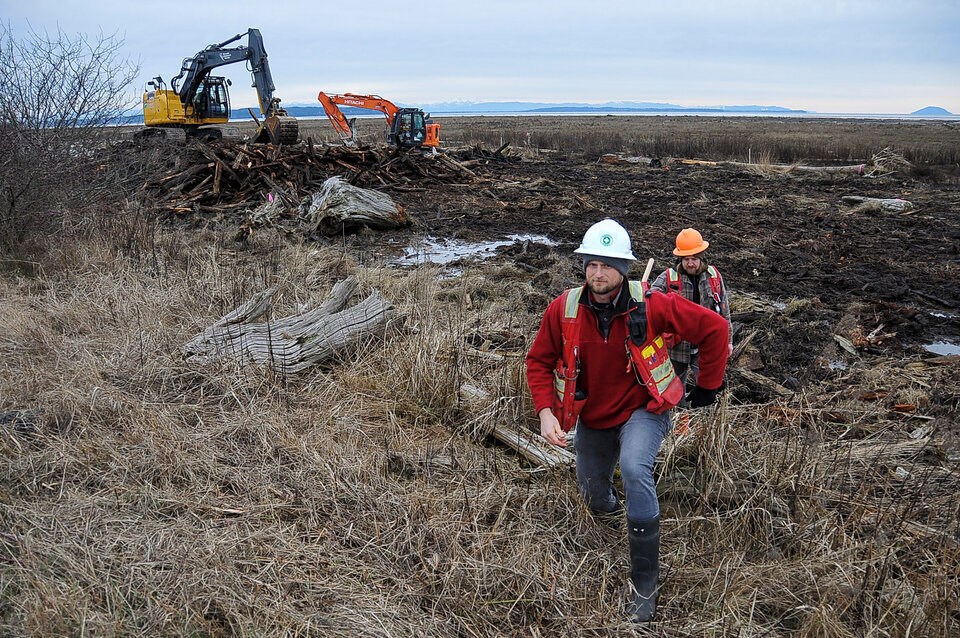A strong majority of Metro Vancouver residents back the creation of a green fund that would support regional conservation projects, a new poll has found.
Among the 1,000 residents polled, 82 per cent of respondents said they support the creation of a conservation fund — a dedicated green tax or fee that would support local sustainability projects — while 63 per cent said they would personally pay for it.
The survey was carried out in March 2023 by Angus Reid Forum on commission from the Fraser River Delta Farmland Protection and Stewardship Working Group, an organization made up of federal and local governments, environmental non-profits and universities.
Carla Stewart, a senior planner with Metro Vancouver, who represents the regional body on the working group, said the federation was “heartened” the poll found “widespread public support for green spaces and conservation efforts.”
“The study underscores the vital role played by agricultural lands, parks, forests, and other natural areas in supporting the region's well-being,” Stewart said in an emailed statement.
Similar funds have been established in the South Okanagan and Kootenays.
In 2008, residents of the Upper Columbia Valley voted in favour of property owners paying a parcel tax of five cents per $1,000 of taxable assessed value, capped at $230,000 annually. That works out to about $20 per parcel in the East Kootenay, according to the Kootenay Conservation Program (KCP).
While the Columbia Valley Local Conservation Fund raised $2.68 million over the past 12 years, that money went on to leverage another $23 million in funding, said Juliet Craig, director of the KCP.
“It’s a relatively small investment families and property owners can make that can have a real big impact,” said Craig.
“We’ve just seen so many benefits.”
Projects have included preparing bats for white-nose syndrome, removing aquatic invasive species and finding solutions to coexist with grizzly bears. Other projects have targeted the monitoring of ground water, reducing wildfire hazards and investigating how to limit the spread of pathogens from domestic sheep to vulnerable wild species.
The pollsters found Metro Vancouver residents expressed strong concern over the prospect of disasters and contaminating the natural world, with 88 per cent of respondents saying they worry about increasing water pollution and wildfires.
A majority of respondents also said they worried about high food prices, including 91 per cent who expressed concern over damage to pollinators and 89 per cent worried about salmon populations.
Matt Christensen, head of B.C. Conservation Programs at Ducks Unlimited Canada, said any conservation fund set up in the Metro region would aim to balance food security with wildlife habitat.
That could mean levying a tax through Metro Vancouver or municipalities to provide farmers with incentives to protect their farmland in an environmentally friendly way.
“We really don’t want to make Metro Vancouver more unaffordable,” said Christensen.
“But if we invest now, we can really stave off some of the higher costs of climate change.”



